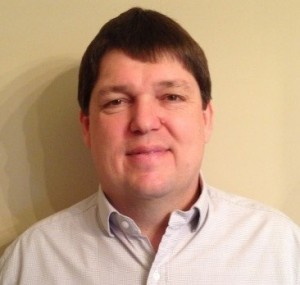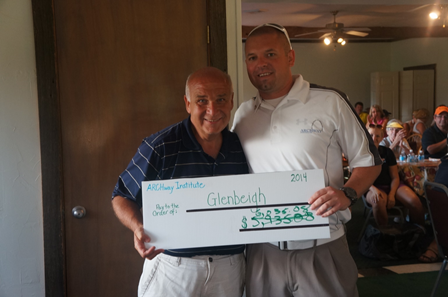
Note from the Chairman of the Board

Dan Stuckey, Chairman of the Board
First of all, we want to thank all of you for your on-going support as this young organization continues to grow. Like any new business or organization the first couple of years will always tell if it can survive and grow. I can tell you that with your support we have passed this first test of time, and our mission to serve individuals, families and communities dealing with the issues surrounding Mental Health and Addictive Disorders is on its feet and ramping up to be the service group we envisioned we might become. I am pleased to share with you our first Annual Report.
I think we can sum up our 2014 as mainly a year of organization while at the same time meeting our goals of education and awareness and giving direct financial support to individuals who want to be in recovery but do not have the financial means to put a full treatment program in place. Here are some of the top line accomplishments:
- Applied and received our Non-Profit Status 501(c )3 status.
- Now Registered in Missouri, Florida and Ohio.
- Put in place a very professional, diverse and all volunteer Board.
- Put in place a volunteer staff to run numerous committees. We are very fortunate to have added 7 new, professional and passionate individuals to help run our committees.
- While our fundraising activity was small in 2014 because we were waiting to get our Non Profit Status, we did run a couple fund raising activities in the back half of 2014.
- We have been able to donate close to $10,000 to local community organizations that could directly give these funds to individuals that needed financial assistance to offset their costs of a recovery treatment program.
- We have brought awareness and education to the issues Mental Health and Addictive Disorders by sharing information through events and numerous radio interviews in Ohio and Missouri and nationally through our web site pod casts.
We want to insure you that all Board Members, Executive Staff and Committee Staff are volunteers. The only administration costs have been our initial legal fees, registration fees and liability insurance for the organization and direct costs associated with paying vendors for dinners, golf or marketing material. Board members have elected not to be reimbursed for any expenses they might incur in attending Board meetings or events around the country. Now that we have applied and paid registration fees for the initial startup of our organization, our administration costs will go down in the future.
As you can see, we are organized and excited to take on 2015. Our goals in 2015 are pretty straight forward and they are all about growing our ability to serve and meet our goals of education & awareness as well as direct support to individuals with financial needs in getting the recovery program put in place, which they both want and need.
- In 2015 our goal is to donate over $20,000 to organizations that have direct access and visibility to individuals with financial needs.
- In 2015 our goal is to expand our direct network of individuals supporting ARCHway from about 200 to over 500 individuals. We hope this will drive our cause of bringing education and awareness to the issues as well as relieve some stress on us asking the same group each time for support and help during our initial startup.
The issue of Mental Health and Addictive Disorders in some manner affects all of us. In some cases it is the direct implication of either being a caregiver for or an individual dealing with mental health and addictive issues. In some cases it is the general public who has to deal with some of the sad issues like crime and criminal costs that unfortunately follow these disorders. But in the end, each and every one of us is impacted in some way.
As our biggest supporters, we hope we are meeting the bar for what you would expect with your donated dollars. I personally hope you take the time to read more of the information provided including the section of our annual report on what steps you can take to personally help in not just our cause but the mental health and addiction disorders issues surrounding our communities in general. If you have ideas on how we can serve better or if you have questions or have a loved one that is dealing with issues you would like us to talk with, please feel free to write me or call me anytime and we will listen. I can be reached at Dstuckey57@hotmail.com or call 314-452-4982.
Again, thank you for your support and belief in what we are doing.
Dan Stuckey
Chairman of the Board
ARCHway Institute for Mental Health and Addictive Disorders
New Board Members

Jeffry Stoll, Treasurer
Jeffry J. Stoll
Treasurer
Mr. Stoll has been employed at Energizer Holdings, Inc. for 17+ years in various Finance, Accounting, Sales and Marketing roles. He is currently serving as Manager – Pricing and Revenue Management with Energizer. From 1990 to 1997, Mr. Stoll worked in various accounting and finance roles with KPMG Peat Marwick and Brown Shoe Company.
Mr. Stoll brings the benefits of his diverse finance and accounting background and experience to the Board and Finance Committee.

Lisa Callahan, Ph.D.
Chairman Education & Awareness Committee
Lisa Callahan, Ph.D.
Chairman Education & Awareness Committee
Lisa Callahan, Ph.D., is a Senior Research Associate at Policy Research Associates, Inc. where she is involved in research, technical assistance, and training. She received her PhD from The Ohio State University in 1983 and completed an NIMH Post-Doctoral program at the University of Wisconsin-Madison’s Medical School.
She is Principal Investigator for an NIJ-funded study on the connection between juvenile justice, child welfare, and adult outcomes. Dr. Callahan was Project Director on two recently completed NIJ studies—an evaluation of two specialty juvenile dockets including a co-occurring court and a mental health court, and a study on how youth drunk drivers are processed in US courts. She was Project Director on the MacArthur Mental Health Court Studies which was a multi-site, prospective evaluation of four adult mental health courts.
Further, Dr. Callahan is involved in research on justice-involved Veterans including managing the National Evaluation of the Veteran Justice Programs for the Veterans Administration and an evaluation of the Veterans Treatment Review Calendar Pilot Program in San Diego. Dr. Callahan has extensively published on topics such as juvenile mental health courts, adult mental health courts, and other related topics.
She is the task lead for SAMHSA’s GAINS Center’s technical assistance for 17 Behavioral Health Treatment Court Collaborative grants and had the same responsibility for the first cohort of 11 grants that just concluded. In addition, she was part of the PRA team that conducted a study to select and evaluate the trauma measures used in the Queens NY Treatment Courts. Dr. Callahan has considerable experience providing trauma training and workshops for justice professionals, including treatment court staff and judges. She first started working at PRA when it was founded in 1988 to 1990, directing the NIMH insanity defense study and receiving a NIMH FIRST award to evaluate conditional release in four sites.
Dr. Callahan is Professor Emerita from The Sage Colleges where for 18 years she taught courses in juvenile and criminal justice, mental health, and research methods and established the MS in Forensic Mental Health Program, one of the first in the country. She returned to PRA in 2008.
Education & Awareness
A number of important issues need to be addressed when confronted with an addictive disorder to legal or illegal substances. What complicates an informed approach is the challenge of letting information and thoughtfulness guide us rather than emotions such as fear, embarrassment, and denial.
There are many important issues that need immediate attention as well as some considerations after the emergency. The shape of the response to an addiction will vary by a number of factors such as the age of the person with the addiction, the available resources (e.g. health insurance, income, geography), and the nature of the addiction.
The circumstances of “coming to terms” with an addiction – for example, an arrest, an overdose, a discovery of substances, job termination, etc. – will help prioritize the issues.
The first consideration is SAFETY – yours and theirs. How can the person with the addiction and those close to him be safe? This concern is entwined with every other problem you will confront. The best answer isn’t always popular or intuitive. Directly related to safety is HEALTH. Addiction – whether it is to illegal or legal substances– has profound health consequences. Make sure the individual’s whole health is assessed including screening for STDs, cross-addiction, and other diseases such as Hep C and HIV/AIDS. Remember that high-risk behaviors often accompany addiction; the “filter” is often gone. Having access to a physician who specializes in addictions is a bonus. She will know the range of health risks the person has been exposed to in the short and long term. He can advise you and them about short and long term treatment and whole health.
Directly related to HEALTH is the person’s MENTAL HEALTH. As with the medical field, the mental health field has specialists who are knowledgeable about diagnosing and treating substance abuse disorders such as addiction. Is the person “self medicating” symptoms of mental illness such as anxiety or depression? Is there underlying trauma? Most mental health problems can be effectively treated with evidence-based practices (link to SAMHSA’s EBPs) delivered by a licensed professional. Suicide is a very real risk for people both in an active addiction and in recovery. When a person is “clean and sober,” the problems preceding their addiction, not to mention the problems their addiction caused, are still there. Treatment should be age and gender appropriate as well as culturally informed.
There are LEGAL consequences to addiction. While the individual may not have been arrested for a crime related to his/her addiction such as possession, sales, or theft, they often accumulate collateral consequences such as bad credit, heavy debt, unpaid bills, and minor infractions such as parking tickets. Together, the total of these infractions can snowball into larger legal troubles. Some programs – such as some drug treatment courts (which require an arrest) – may work with participants to decrease or dismiss debt. If there has been an arrest, immediately begin inquiring about whether there are diversion programs for persons with addictions. The most typical program would be a Drug Treatment Court. While not all communities have a formal drug court, many do. Hiring an attorney means finding one who knows the scope of services available to someone with an addiction. This is usually not your regular family or business lawyer.
Treatment is expensive, so there are FINANCIAL costs and considerations associated with addiction. Aside from the legal troubles mentioned above, effective treatment is expensive. The Affordable Care Act (Obamacare) and many states require expanded behavioral health screening and treatment. This isn’t to say that you don’t have steep co-pays or that an affordable treatment intervention is accessible. If you have financial resources, you will be able to find an evidence-based treatment. Long-term addiction treatment has financial consequences that should be addressed after the emergency. Cleaning up financial messes created by addiction must also be faced.
A person with an addiction may have a spotty EMPLOYMENT record associated with their substance use such as frequent absences, using on the job, or poor job performance. Even if the addiction went unnoticed, there are a number of considerations for someone returning to work while in recovery. First, was the place/type of employment part of the problem? The culture of some occupations encourage drug and alcohol use. Some work places are known as “pill factories,” and some occupations celebrate every good event with drinks after work. Second, if the addiction is related to an unfavorable work history, find an employment specialist who can help guide the person in recovery through the re-employment process. Some treatment programs have established relationships with employers who hire participants. Some employers are “recovery friendly” and provide a new start for people in recovery.
The EDUCATION process is interrupted well before an addiction is discovered. For many youngsters, it is the change in school performance that signals that something is wrong. Further, teenagers will tell you that they can get any drug they want at school. Aside from missing out on learning opportunities, a youngster’s addiction has a profound effect on how the youth moves back into a typical adolescent/young adult world. One of the first problems to address is that using alcohol and some drugs IS typical behavior. For a young person in recovery, their life is anything but typical, as most teens do not become addicted to alcohol or other drugs. That immediately sets them apart from their peers. If college is a goal, there are a number of challenges – first, if there has been a drug conviction (and some other outcomes), the youth very likely is disqualified from some types of financial aid. The “Common Application” that most colleges use for admission, asks if the applicant has a drug conviction. If that hurdle is not an issue, there is still the daunting reality of going/returning to college in recovery. More and more colleges offer “sober housing” for students in recovery and for those who don’t want to be around alcohol and other drugs. Identifying a supportive recovery environment is necessary before a college is chosen. College health centers should have this information, and ask for people in recovery to speak with about the community and services.
Addictions erode RELATIONSHIPS. An addiction affects more than the person using the substances in many of the areas noted above. Chances are, someone with an addiction has lied to, stolen from, betrayed, and perhaps done worse to their family and friends. Healing those damaged relationships takes patience and usually professional treatment. The coping behaviors of family and friends don’t evolve overnight, and, consequently, they do not heal overnight. There are many support groups for family and friends of persons with addictions. Professionals who specialize in treating addictions are good resources to work toward all involved developing health relationships. Alcohol and other drug use is often a social event, including friends and family members. This, of course, complicates recovery for an individual if the others are not at that point yet.
The first, and last, issue that people affected by addiction must face is STIGMA. The first assault on the stigma of addiction is to stop equating the person with his/her addiction – a person with an addiction is not an “addict.” We don’t even have an equivalent word for a person with cancer. We are not our diseases; it is just part of who we are. This is referred to as “people first” language, and it is a first step in fighting stigma. It is not a secret that many people still believe that a person just “needs to stop” using drugs or drinking alcohol. An addiction is viewed by many, not as a behavioral health disorder, but as a character flaw or a weakness. It is often the stigma of substance use that delays identifying someone as having an addiction. Seeking treatment for an addiction may be viewed as being unable to quit on your own, or that the person’s behavior isn’t “like those other people.” Parents, friends, and other family members often see an addiction as a failure on their part, adding another layer of denial and fear to seeking treatment.
A comprehensive approach to addressing addiction is key to recovery. Avoiding difficult topics just pushes them further down the road. While the person in recovery very likely cannot face many of these issues early in treatment, the caregivers and other support need to begin with a checklist to make sure recovery is comprehensive and successful, hitting as few roadblocks and surprises as possible.
About AmazonSmile

What is AmazonSmile?
AmazonSmile is a simple and automatic way for you to support the ARCHway Institute for Mental Health and Addictive Disorders every time you shop, at no cost to you. When you shop at smile.amazon.com, you’ll find the exact same low prices, vast selection and convenient shopping experience as Amazon.com, with the added bonus that Amazon will donate a portion of the purchase price to the ARCHway Institute for Mental Health and Addictive Disorders.
How do I shop at AmazonSmile?
To shop at AmazonSmile simply go to smile.amazon.com from the web browser on your computer or mobile device. You may also want to add a bookmark to smile.amazon.com to make it even easier to return and start your shopping at AmazonSmile.
Which products on AmazonSmile are eligible for charitable donations?
Tens of millions of products on AmazonSmile are eligible for donations. You will see eligible products marked “Eligible for AmazonSmile donation” on their product detail pages. Recurring Subscribe-and-Save purchases and subscription renewals are not currently eligible.
Can I use my existing Amazon.com account on AmazonSmile?
Yes, you use the same account on Amazon.com and AmazonSmile. Your shopping cart, Wish List, wedding or baby registry, and other account settings are also the same.
How do I select a charitable organization to support when shopping on AmazonSmile?
On your first visit to AmazonSmile (smile.amazon.com), you need to select the ARCHway Institute for Mental Health and Addictive Disorders so they receive donations from eligible purchases before you begin shopping. We will remember your selection, and then every eligible purchase you make at smile.amazon.com will result in a donation.
How much of my purchase does Amazon donate?
The AmazonSmile Foundation will donate 0.5% of the purchase price from your eligible AmazonSmile purchases. The purchase price is the amount paid for the item minus any rebates and excluding shipping & handling, gift-wrapping fees, taxes, or service charges. From time to time, we may offer special, limited time promotions that increase the donation amount on one or more products or services or provide for additional donations to charitable organizations. Special terms and restrictions may apply. Please see the relevant promotion for complete details.
Can I receive a tax deduction for amounts donated from my purchases on AmazonSmile?
Donations are made by the AmazonSmile Foundation and are not tax deductible by you.
How can I learn more about AmazonSmile?
Please see complete AmazonSmile program details.
Note from Glenbeigh – Rock Creek, Ohio

John Stuckey (Executive Director of ARCHway Institute) handing Gary
Seech (Director at Glenbeigh) a Check from the 2014 Ohio Golf Outing
Lack of access to information about treatment and recovery impacts the health of addicted individuals as well as entire families. While ARCHway’s goal is to make a difference in just one person’s life, their efforts to provide patient aid at Glenbeigh have in fact touched many more.
As a result of their philanthropic efforts, resulting from two golf outings, ARCHway donated over $8,000 to further the mission of Glenbeigh, which is to provide the highest quality care to adults suffering from alcohol and/or drug addiction. ARCHway’s generosity provided 160 hours of intensive treatment to individuals with limited financial means, giving them the opportunity to build a strong foundation in recovery.
 Glenbeigh, a non-profit specialty hospital founded in 1981, offers a full continuum of care for adults, age 18 and over. Glenbeigh is accredited by The Joint Commission and is a member of the ACMC Healthcare System, an affiliate of Cleveland Clinic. In addition to inpatient treatment, Glenbeigh offers intensive outpatient services in Beachwood, Canton, Niles, Rocky River and Toledo in Ohio as well as in Erie, Pennsylvania. Visit www.glenbeigh.com for more information on addiction and treatment options.
Glenbeigh, a non-profit specialty hospital founded in 1981, offers a full continuum of care for adults, age 18 and over. Glenbeigh is accredited by The Joint Commission and is a member of the ACMC Healthcare System, an affiliate of Cleveland Clinic. In addition to inpatient treatment, Glenbeigh offers intensive outpatient services in Beachwood, Canton, Niles, Rocky River and Toledo in Ohio as well as in Erie, Pennsylvania. Visit www.glenbeigh.com for more information on addiction and treatment options.
2015 Fundraising Activities
Our goals in 2015 are to grow our network of ARCHway supporters, bring awareness and education through all our activities and raise funds to be donated to individuals with financial needs who want to be in a Recovery Program but cannot do it without our help. Our target is to donate over $20,000 in 2015. As you can see, we have a fairly aggressive schedule of events in 2015 and any help you can give us in getting the word out would be appreciated.
| Date | Activity | Location | Organization to Donate To | Contact Person |
| March 5, 2015 | Formal Dinner | St Louis, Missouri | General Donation Fund | Phil Treacy philtreacy@sbcglobal.net |
| March 14, 2015 | Golf Outing | Punta Gorda, Florida | CBHC in Punta Gorda, Florida | Dan Stuckey DStuckey57@hotmail.com |
| June 27, 2015 | Golf Outing | Toledo, Ohio | Glenbeigh Outpatient Facility in Toledo, Ohio | Brian Stuckey brian_stuckey@reyrey.com |
| September 10, 2015 | Golf Outing | Geneva, Ohio | Glenbeigh Inpatient Facility in Rock Creek, Ohio | Dan Stuckey DStuckey57@hotmail.com |
| September 2015 | E-Mail Drive for “National Recovery Month” | Nationally | General Donation Fund | Jan Stuckey JanStuckey6@gmail.com |
| October 18, 2015 | Golf Outing | St Louis, Missouri | ARCAMidwest of St Louis | Dave Aumiller daumiller@arcamidwest.com |
| December 2015 | E-Mail Drive associated with “GivingTuesday” | Nationally | General Donation Fund | Jan Stuckey JanStuckey6@gmail.com |
What You Can Do As An Individual

If you find the mission of the ARCHway Institute for Mental Health and Addicitve Disorders a worthy one, there are a number of ways you can help as an individual in your community. Remember the ARCH in Archway stands for Awareness – Recovery – Community – Health and it will give you a good view of how to get started in changing one’s life. If you stay connected with ARCHway, we will continually help you stay current at https://thearchwayinstitute.org/ .
Awareness – Probably the most important way is to take the time to educate and become aware of the issues surrounding mental health and addictive disorders. We encourage you to make a special focus on Alcohol and Drug Addiction issues as it is one of the largest problems in our country today. You can start by visiting our web site where we have posted a number of links to good resources on the subject. (https://thearchwayinstitute.org/get-help/community-resources/ ) or you can search for interviews of individuals in recovery, professionals in the area, pastors and politicians
Recovery – You may have someone in your family or know a family who needs help. Remember, people can and do get better who are afflicted with these disorders. Take the time to pass on this Report on to those folks or have them send us a note to Emily.Jung@TheARCHwayInstitute.org and we will help them find resources in their area which can support them in their recovery program. You may be fortunate enough not to need these resources now, but our experience is that both individuals and families dealing with these issues are searching for reliable information and answers. We can help point them to the professional organizations they need.
Community – Take the time to get involved in your community. This can be as simple as making a donation so we can help individuals who want to be in recovery but do not have the financial means to do so get the financial resources it needs. It can be as simple as just having a conversation with a friend or family member about addiction disorders. There is a huge society stigma around mental health and addictive disorders that just keeps people from talking about it. You will be amazed how many people are dealing with this and just opening up a conversation is the first step in solving the problem in our communities. On a larger scale, if you are interested in running an ARCHway Institute event in your area please contact us and we will help you get started. Just contact us at Emily.Jung@TheARCHwayInstitute.org . There are many ways to get involved and show support.
Health – When we talk about health, we are talking about health of the afflicted individual, health of the caregivers and health of the community. As an individual, if you arm yourself with even a small amount of good information and become open to talk to family and friends about the issues you will be amazed at the impact you can have. You might just give a caregiver what they really need and that is a shoulder to lean on or the information they need to help their loved one. By just listening and trying to understand you will help reduce the stigma associated with these disorders and make it easier for individuals to get the help they need. These simple things will help the Health of the individual, caregiver and community at large.
Donate
Please consider making a financial donation to the ARCHway Institute for Mental Health and Addictive Disorders. Every dollar donated helps us get one step closer to fulfilling our mission and implementing our vision for our organization.
You can make a donation online with the link below using PayPal or a credit card.
You can also make a donation with a check. Make the check payable to ARCHway Institute and send it to:
ARCHway Institute
c/o Dan Stuckey
3777 Candia Drive
Punta Gorda, Florida
33950

